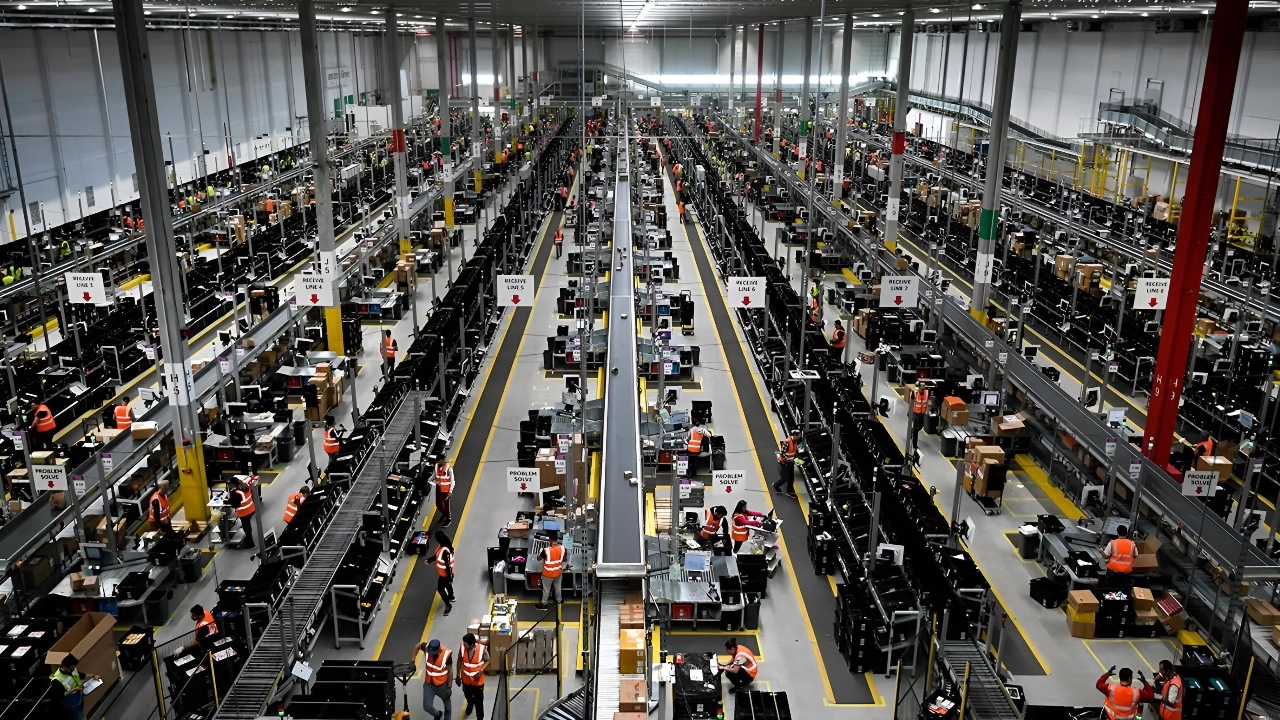
A surge of layoffs is sweeping across Texas, with more than 920 workers from nine companies set to lose their jobs over a six-week period. The cuts, which span industries from food production and manufacturing to energy transport and recycling, are sending shockwaves through communities from El Paso to Dallas.
As companies shutter facilities, consolidate operations, or downsize after acquisitions, the ripple effects are poised to test the resilience of local economies and the state’s broader supply chain.
Major Layoffs and Industry Shifts

The largest single layoff comes from Flagstone Foods in El Paso, where 225 employees—including production, warehouse, and manufacturing staff—will be let go as private label operations move to North Carolina and Alabama. This decision comes just a year after the facility expanded, highlighting how quickly corporate strategies can shift in response to market pressures.
Congo Brands in Lewisville is eliminating 155 remote-based field positions, including dozens of sales and marketing roles, following its acquisition by Celsius Holdings. The move is part of a broader effort to streamline costs after the $1.65 billion deal, leaving Texas workers among the first to feel the impact of post-merger restructuring.
In Cleburne, the vertical farming company Eden Green Technology is closing its doors and laying off 102 employees after failing to secure new investment. Despite supplying produce to over 400 Walmart stores, the company’s $40 million expansion plans were halted, reflecting the broader challenges facing AgTech startups that struggle to balance innovation with profitability.
Other significant layoffs include 88 workers at Natura PCR’s Waller recycling facility, which is closing due to low demand for recycled plastics, and 80 jobs lost at Pure Hothouse Foods in San Antonio as operations consolidate to Edinburg. M&M Manufacturing is shutting its Houston HVAC sheet metal plant, affecting 75 workers, while Firebird Bulk Carriers is reducing staff at seven terminals, citing contract losses and rising insurance costs.
Economic and Community Impact
The combined layoffs are estimated to result in $27.6 million to $46 million in lost annual wages, with El Paso bearing the brunt. The loss of income is expected to ripple through local economies, resulting in reduced spending at restaurants, retailers, and service providers. Historical data suggests that for every direct job lost, nearly another job disappears in supporting industries, amplifying the economic blow.
Small businesses that supply materials, maintenance, and services to these companies are already bracing for lower revenues. Social service organizations anticipate an increase in demand for unemployment assistance, food banks, and mental health support. Municipal budgets may also feel the strain as property and sales tax revenues decline, potentially affecting public services and infrastructure.
Patterns Behind the Layoffs

The layoffs, announced between mid-October and early November, are notable for their concentration and diversity of impact. Five companies are closing facilities outright, while two are consolidating operations. Others, like Congo Brands, are cutting staff as part of acquisition integration, and Firebird Bulk Carriers is responding to contract and insurance challenges.
The geographic spread is wide, touching cities across West, North, Southeast, and South Texas. The affected sectors—food production, energy transport, manufacturing, and recycling—reflect the state’s economic diversity, but also its vulnerability to shifting market forces and corporate strategies.
Several companies are relocating production out of state, citing labor cost savings, logistics optimization, and changing consumer demand. This trend raises questions about Texas’s long-term competitiveness as a hub for domestic supply chains.
Drivers and Industry Trends

The reasons behind the layoffs are varied but interconnected. Corporate acquisitions, such as the Celsius Holdings purchase of Congo Brands, often result in workforce reductions as companies seek to achieve efficiencies.
Others, such as Flagstone Foods and Pure Hothouse, are consolidating operations to streamline supply chains. Market pressures, including rising material costs, declining demand for recycled plastics, and shifts toward new packaging technologies, are forcing companies such as M&M Manufacturing, Natura PCR, and Tekni-Plex to consider closing or restructuring.
The closure of Eden Green Technology highlights the challenges facing vertical farming and AgTech ventures, which require substantial investment and incur high operational costs. Similarly, the recycling sector is struggling as the price of virgin plastic remains low, making it hard for recycled materials to compete.
In the oil and gas transport sector, Firebird Bulk Carriers is grappling with lost contracts and insurance premium hikes, while trucking costs have risen sharply. With crude oil prices forecasted to fall, the outlook for energy transport remains uncertain.
Looking Ahead: Community Response and Future Risks

All nine companies have filed the required WARN notices, and some are offering severance, transfers, or career support to affected workers. Local workforce agencies are organizing job fairs and support services, but the scale and speed of the layoffs present ongoing challenges.
The current wave of job losses signals more profound structural changes in Texas’s supply chain and industrial landscape. As companies relocate, consolidate, or close in response to market and financial pressures, communities across the state face a period of adjustment. The long-term implications will depend on how quickly displaced workers can find new opportunities and whether Texas can adapt to the evolving demands of national and global supply chains.